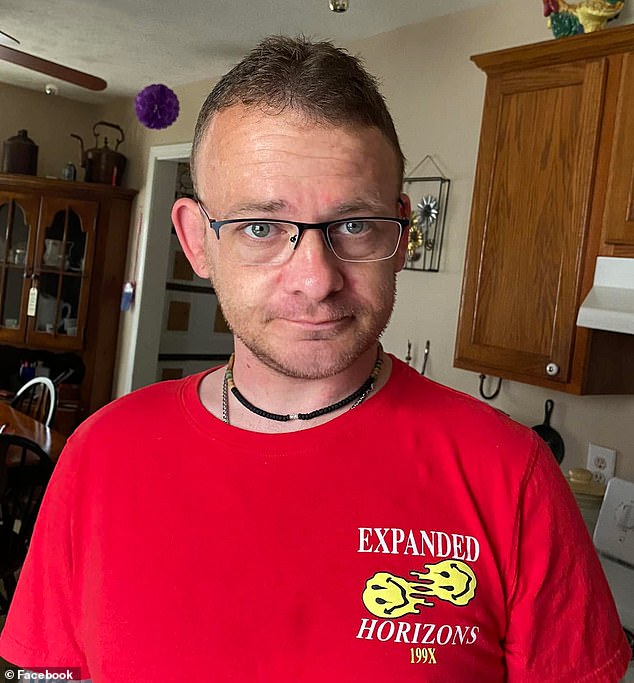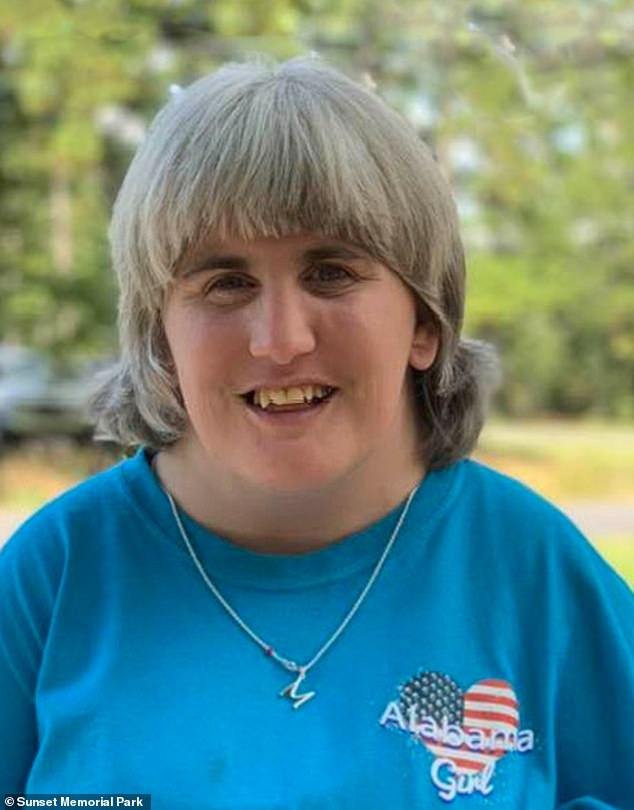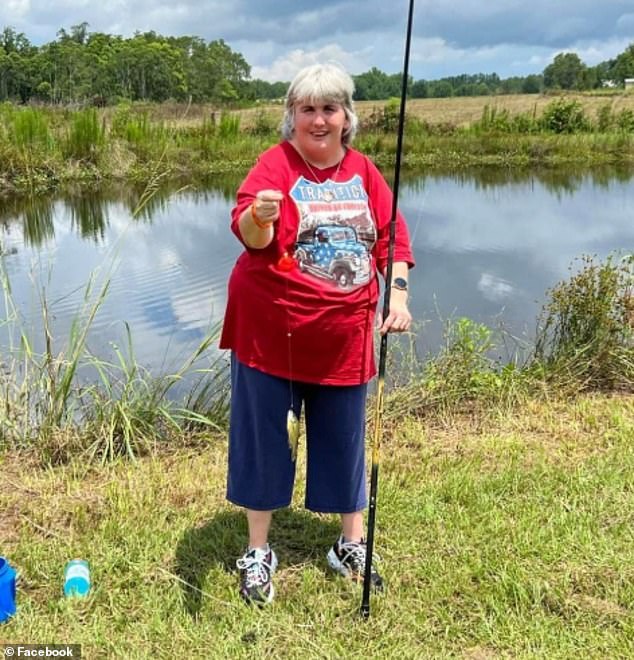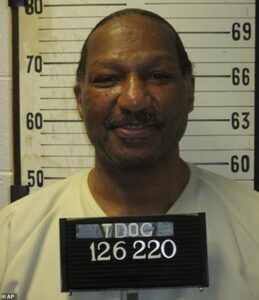By WILL POTTER, US SENIOR NEWS REPORTER
Published: | Updated:
An organ harvesting organization has faced allegations that it urged doctors to remove body parts from a comatose woman – who went on to make a full recovery after medics insisted she showed signs of life.
Danella Gallegos said she feels lucky to be alive after her organs were almost taken by ‘pushy’ donor bosses when she fell into a coma in 2022.
Gallegos, who was 38 at the time, was homeless when she suffered an unspecified medical emergency, and doctors at Presbyterian Hospital in Albuquerque, New Mexico told her family she would never recover.
Without any hope, her family agreed to donate her organs and preparations were made with procurement organization New Mexico Donor Services.
In her final days, Gallegos’ family said they saw tears in her eyes – a sign that they say donation coordinators quickly brushed off, claiming watery eyes were just a reflex.
On the day her organs were set to be taken, one of Gallegos’ sisters said she was adamant Danella was still sentient because she saw her move while holding her hand.
Doctors in a pre-surgery room were left stunned when Gallegos, deep in a coma but still medically alive, was able to blink her eyes on the medic’s command.
But the organ coordinator in the room told doctors that they should ply the patient with morphine and move ahead anyway, according to a New York Times report.


Gallegos’s doctors defied the coordinators, and they brought her out of surgery.
The doctors’ decision saved her life – as Gallegos went on to make a full recovery.
‘I feel so fortunate,’ she says, adding that she recalled feeling fear while in her coma but not much else.
‘But it’s also crazy to think how close things came to ending differently.’
Hospital workers told the Times that they faced pressure from New Mexico Donor Services to forge ahead despite their doubts, which the organization denied.
The organ harvesting organization said that it does not interfere with medical decision making, and stressed that only hospitals are in charge of caring for patients.
In response, Presbyterian Hospital said that Donor Services was actually responsible for all aspects of the donation process. It has launched an investigation into Gallegos’s case.
‘All they care about is getting organs,’ Neva Williams, a veteran intensive care nurse at the hospital, told the Times. ‘They’re so aggressive. It’s sickening.’
New Mexico Donor Services has been contacted by Daily Mail for comment.
The harrowing story emerged as mounting scrutiny has fallen on the organ donation industry amid allegations that it is rife with mistakes and abuse.

Many such stories have emerged as hospitals increasingly turn to a type of organ removal called ‘donation after circulatory death’, where a patient is not deemed medically deceased but is not likely to ever recover.
These surgeries, which require permission from the patient’s family, accounted for a third of all organ donations last year in the US, and triple the number from five years earlier.
The space of time between when a person is dead and when their organs are viable is short, meaning that the process can be subject to rushed decisions.
In Kentucky, a federal investigation this year found that the state’s organ procurement organization had ignored signs of increasing consciousness among 73 donors, including a man whose organs were pursued even as he shook his head and pulled his knees up to his chest.
‘I think these types of problems are happening much more than we know,’ Dr. Wade Smith, a longtime neurologist at the University of California, San Francisco, told the Times.
The organ harvesting industry was met with increased federal oversight last year following a shock hearing that included testimony from another near-miss patient, Anthony Hoover.

Hoover was set to be removed from life support and his organs taken in 2021 when he suddenly woke up moments before.
He suffered severe neurological injuries, but survived the ordeal.
His case led Kentucky authorities to put in place new policies to perform regular neurological testing on patients to scan for brain activity, and develop ways for clinicians to pause donations when they can see a patient is improving.
While Hoover was saved moments before he was removed from life support, the Times investigation found that another patient, Misty Hawkins, was only found to still be alive after doctors had already sawed into her chest.
Hawkins, 42, fell into a coma last year after choking while eating, and spent weeks in hospital before her mother was faced with the decision of taking her off life support.
Her mother eventually decided to go ahead and donate her organs, and 103 minutes after Hawkins was taken off life support she was declared dead.
A surgeon sawed through her breastbone, only to discover that her heart was still beating and she appeared to be breathing.

Hospital staff said that surgeons ‘immediately stopped the procedure once they saw that the donor’s heart was beating’, but Hawkins sadly passed away a short time later.
Experts said that while organ donation saves thousands of lives every year, the industry is rapidly expanding, meaning procurement organizations continually try and arrange more transplants.
The Health and Human Services Department has said in 2020 that the growing demand led it to begin grading procurement organizations based on how many organ donations they get each year.
Some now say that this leads procurers to pressure doctors to operate on patients on the line between living and dead.
Dr. Robert Cannon, a transplant surgeon at the University of Alabama at Birmingham, told the Times that he believes the industry has morphed into a vulnerable system where doctors are hesitant to speak out through fear that people could stop donating altogether.
‘I don’t know the scope of the problem. I don’t know that anybody does,’ he said.
‘That’s the scary thing.’








